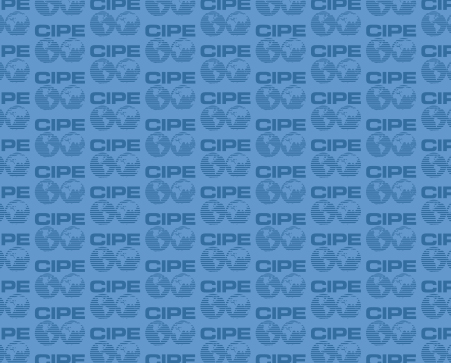
Every year, September 15 marks the passing of the International Day of Democracy. This year, organizations celebrating the Day of Democracy are encouraged to address issues of civic education by teaching citizens about democratic institutions such as constitutional rights, political representation, and how to participate past election day. UN Secretary-General Ban Ki-moon has stated, “In marking this year’s International Day of Democracy, let us… work to bring democracy education to all, and in particular, to those societies in transition that need it most.”
Civic understanding and involvement is no doubt critical to establishing and consolidating democracy. However, democracy education should not be limited to voters, especially when addressing countries in transition. Leaders and policy makers responsible for drafting and instituting democratic reforms also require an understanding of the forces that contribute to a functioning, sustainable democracy. As we have seen recently in many countries transitioning to democracy, a key question facing newly elected leaders is how to provide for the economic well being of citizens and the development of a country. If new governments fail in this, the consolidation of democracy cannot be assured.
Though this is a pressing issue, the sector most responsible for long-term economic prosperity has been largely absent from global fora on democracy. The absence of the private sector from these debates has resulted in a limited understanding among democratic reformers of the important links between the free market and democracy. Seeking to contribute to this understanding, the newly created Free Enterprise and Democracy Network (FEDN) brings together democratic reformers, champions of the private sector, and members of civil society to advocate for a positive business environment and strengthen democracy.
FEDN believes that in addition to political and labor representatives, the private sector acts as a third pillar of democracy. Chief among the network principles is the belief that a free market economy and democracy are mutually supportive systems. Rule of law, for example, protects the fundamental rights of all citizens while also guaranteeing contracts and commercial commitments that are vital for the operation of business. Similarly, property rights create a framework for prosperity by providing a mechanism to access capital, but they also bolster civil rights and place constraints on government action. Essentially, FEDN members understand that the components of a free market also help generate the necessary institutions to sustain effective democratic governance.
Benefits flow in the other direction as well. As the FEDN principles state, “Democracy brings long-run benefits to sustainable growth and human development.” In addition to possessing intrinsic value, democracy is also a means to a better business environment as it provides checks on the abuse of authority and creates channels to improve economic policy. When the private sector is able to participate in policy discourse, independent voices contribute to effective policymaking, the result of which is sustainable economic growth.
In addition to expressing the linkages between democracy and the free market, FEDN aims to act as a forum for the exchange of ideas and mutual support among members. Earlier this year, Dr. Boris Begovic, president of the Center for Liberal Democratic Studies and FEDN steering committee member, traveled to Jordan to share the Serbian transition experience with a group of reformers from the Middle East and North Africa. Dr. Begovic’s remarks were complimented by a discussion with Dr. Jesus P. Estanislao, chairman of the Philippines’ Institute for Corporate Directors. Gaining invaluable insight, attendees from Yemen and Syria immediately drafted visions for reform and established organizations to gather input from the private sector and present recommendations to their respective governments.
The Syrian Economic Forum and Yemeni Economic Vision Task Force are two examples of the benefits mutual support through FEDN can provide. With the objectives and principles formally released, CIPE and the steering committee are now working to engage business leaders, activists, representatives of civil society, and reformers to share experiences and ideas. While attending the World Movement for Democracy next month, steering committee members will begin outreach in earnest.
Published Date: September 17, 2012